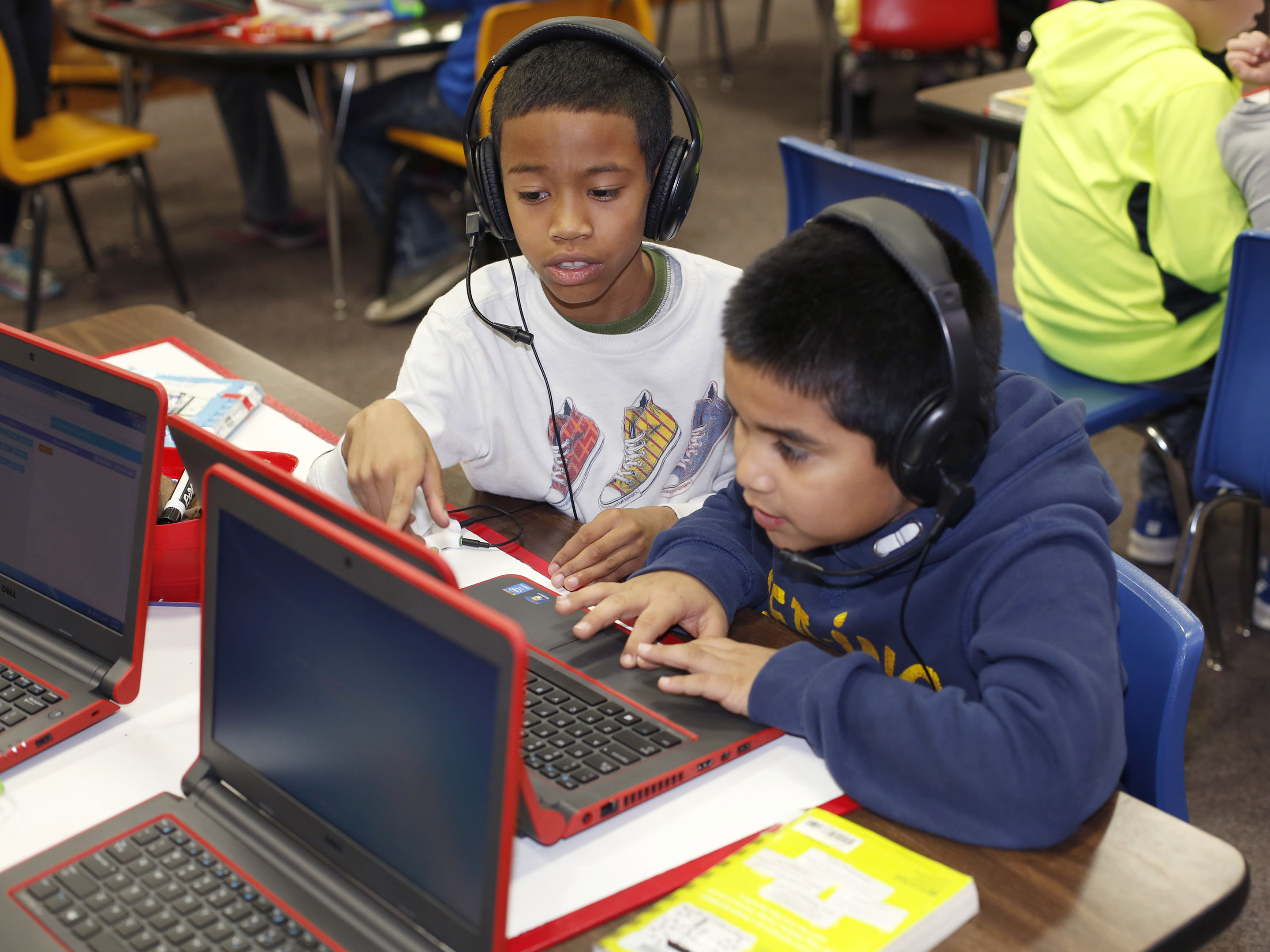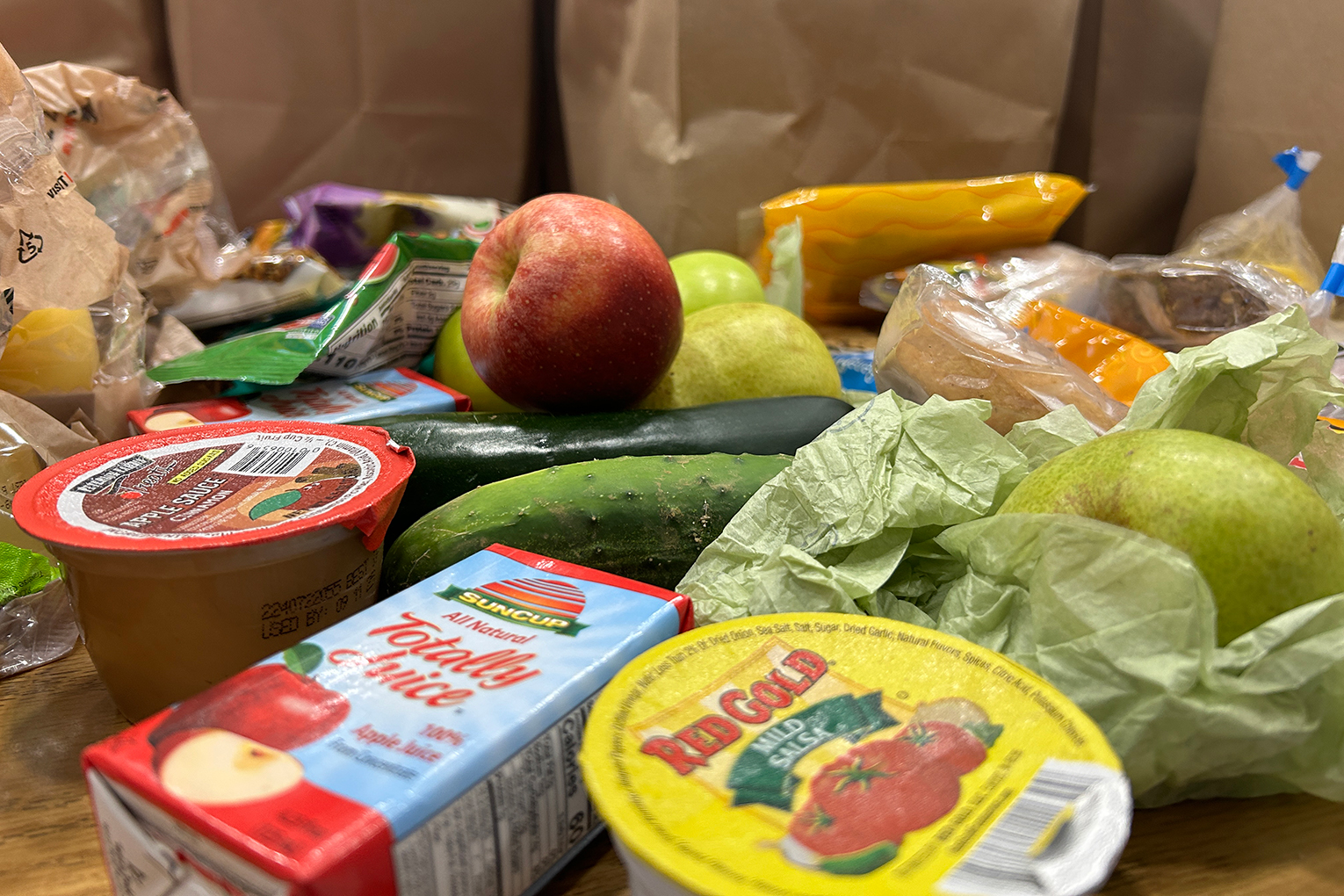
Third-graders Tyrese Myrick and Omar Hernandez-Resa code on laptops during Hour of Code at Beechwood Elementary.
Dec. 7, 2015, Brenna Kelly
(FRANKFORT, Ky.) – Thousands of Kentucky public school students will have the opportunity to gain experience in computer coding starting today as part of Computer Science Education Week.
Students, teachers, parents and policymakers are encouraged to participate in an Hour of Code, a worldwide, hands-on experience in learning to write computer code. No computer science experience is necessary. Students can choose from self-guided tutorials that work on any modern browser, tablet or cell phone and may take part even if they don’t have a computer.
More than 450 Kentucky schools, businesses and organizations have signed up to participate in the fifth year of the event.
“The Hour of Code is a wonderful way to introduce students to computer science,” Commissioner of Education Stephen Pruitt said. “Coding teaches students technical skills and fosters creativity and problem-solving skills that will give them a competitive edge in any future career. In addition, graduates with computer science skills are in high demand for the hundreds of thousands of unfilled computing jobs.”
The Kentucky Department of Education (KDE) is supporting strong computer science education with the creation of new academic standards based on the K-12 Computer Science Framework. The proposed computer science standards are designed to expand learning opportunities and broaden access to critical thinking, computational thinking and problem-solving skills that benefit all students and all career paths.
KDE will collect feedback on the proposed computer science standards through Tuesday, Jan. 2. To provide feedback on the proposed standards, use the following links:
- https://www.surveymonkey.com/r/LKDGHRY (elementary school)
- https://www.surveymonkey.com/r/VK259Y6 (middle school)
- https://www.surveymonkey.com/r/DKCZFXL (high school)
The development of the proposed computer science standards is part of a statewide computer science initiative launched earlier this year.
The U.S. Bureau of Labor Statistics projects that occupations related to science, technology, engineering and mathematics (STEM) will grow to more than 9 million between 2012 and 2022, an increase of about 1 million jobs over that 10-year period.
According to Code.org, a national, nonprofit organization that sponsors the Hour of Code, 71 percent of all new jobs in STEM fields are in computing, but only 8 percent of STEM graduates are in computer science. Computer science graduates earn the second-highest starting salary and have the highest full-time employment (76 percent) within six months of graduation. Yet by 2020, there will be 1 million more computing jobs than students graduating from college with computing skills.
Computer science education is growing in Kentucky. The number of students taking AP Computer Science is on the rise. The number of female students and minority students taking the course also has increased. In addition to AP Computer Science, students also have the option to take the AP Computer Science Principles course.
Based on course standards and the teacher of record, a computer science course may qualify as a fourth mathematics course or an elective science course if it involves computational thinking, problem solving, computer programming and a significant emphasis on the science and engineering practices from the Kentucky Academic Standards.
In addition to the AP computer science courses, many Kentucky schools offer coding classes, either as part of their regular course offerings or as an extracurricular activity.
Educators can access free resources and games for the Hour of Code at hourofcode.com.




Leave A Comment